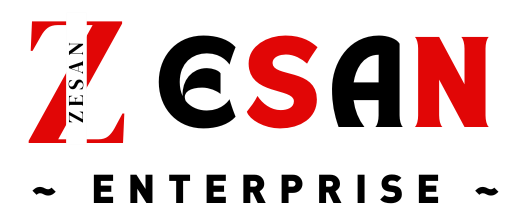In today’s rapidly evolving technological landscape, universities are continually seeking ways to optimize their administrative processes. Boston University has embraced this shift by integrating cutting-edge HR management software into its operations. This blog post explores how HR professionals, university administrators, and tech enthusiasts can leverage this technology to enhance efficiency and improve the overall campus experience.
Understanding HR Software in University Settings
HR software is designed to streamline human resources tasks, from payroll and recruitment to performance management and employee engagement. For universities like Boston University, this technology plays a crucial role in managing a diverse workforce that includes faculty, staff, and student employees. By automating routine tasks, HR software frees up valuable time for administrators to focus on strategic initiatives.
The implementation of HR software in universities goes beyond mere automation. It provides data-driven insights that empower decision-makers to make informed choices about hiring, training, and retention. This shift toward data-centric HR practices aligns with Boston University’s commitment to fostering a forward-thinking academic environment.
The Role of HR Software in University Management
In a bustling institution like Boston University, managing human resources efficiently is paramount. HR software offers a centralized platform for tracking employee records, processing payroll, and managing benefits. This centralized approach reduces administrative errors and ensures compliance with labor laws and university policies.
University management also benefits from HR software’s ability to streamline communication between departments. By providing a unified view of employee information, administrators can quickly access critical data needed for decision-making. This seamless flow of information facilitates collaboration and enhances the university’s overall operational efficiency.
Enhancing Recruitment and Onboarding Processes
Recruitment is a critical function for any university, as attracting top talent is essential for maintaining academic excellence. HR software simplifies the recruitment process by automating job postings, applicant tracking, and interview scheduling. This automation reduces the time to hire and ensures that Boston University attracts the best candidates.
The onboarding process is equally important in setting new hires up for success. HR software facilitates a smooth transition by automating paperwork, providing access to training materials, and assigning mentors. This comprehensive onboarding experience fosters a positive work environment and enhances employee retention.
Streamlining Performance Management and Employee Development
Performance management is a vital component of HR operations in a university setting. HR software enables administrators to set clear performance goals, conduct evaluations, and provide feedback. This structured approach to performance management ensures that faculty and staff are aligned with the university’s strategic objectives.
Employee development is another area where HR software shines. By offering access to training modules and tracking professional development, the software empowers employees to take charge of their growth. This commitment to continuous learning contributes to a motivated and skilled workforce at Boston University.
Improving Employee Engagement and Satisfaction
Employee engagement is a key driver of productivity and retention. HR software facilitates engagement by providing tools for feedback, recognition, and communication. At Boston University, these features create a culture of transparency and inclusivity, where employees feel valued and heard.
Satisfaction surveys conducted through HR software offer insights into employee morale and identify areas for improvement. By addressing these areas proactively, the university can maintain a positive work environment that attracts and retains top talent.
Ensuring Compliance and Data Security
Compliance with labor laws and regulations is a top priority for HR departments. HR software helps Boston University stay compliant by automating processes such as time tracking, leave management, and reporting. This automation reduces the risk of errors and ensures adherence to legal requirements.
Data security is another critical consideration in the digital age. HR software employs advanced security measures to protect sensitive employee information. By safeguarding data, the university maintains trust with employees and upholds its reputation as a responsible employer.
Leveraging Data Analytics for Strategic Decision-Making
Data analytics is transforming the way universities approach HR management. HR software provides access to real-time data and analytics, enabling Boston University to make strategic decisions based on evidence. These insights inform workforce planning, budget allocation, and resource management.
By leveraging data analytics, the university can identify trends and patterns that impact employee performance and satisfaction. This proactive approach to decision-making supports the university’s mission of delivering high-quality education and research opportunities.
Integrating HR Software with Other University Systems
The integration of HR software with other university systems is essential for maximizing its benefits. At Boston University, HR software is seamlessly integrated with finance, payroll, and student information systems. This integration ensures consistency across platforms and eliminates data silos.
A unified IT infrastructure enhances collaboration between departments and supports holistic decision-making. By connecting HR software with other systems, the university strengthens its ability to deliver a cohesive and efficient operational experience.
The Future of HR Management at Boston University
As technology continues to evolve, so will HR management practices at Boston University. The future promises even more advanced HR software capabilities, driven by artificial intelligence and machine learning. These innovations will further enhance efficiency and enable personalized employee experiences.
The university’s commitment to innovation ensures that it remains at the forefront of HR management practices. By staying ahead of technological trends, Boston University can continue to attract top talent and deliver exceptional educational experiences.
Conclusion
The implementation of HR management software at Boston University is revolutionizing the way the institution manages its workforce. From recruitment and onboarding to performance management and data security, HR software plays a pivotal role in enhancing operational efficiency and supporting the university’s strategic goals.
For HR professionals, university administrators, and tech enthusiasts, understanding the capabilities of HR software is essential. By leveraging this technology, institutions like Boston University can foster a dynamic and inclusive work environment that attracts and retains top talent.
To explore how HR software can benefit your organization, consider consulting with industry experts or attending relevant workshops and seminars. By staying informed and proactive, you can harness the power of HR software to drive success and innovation at your institution.















